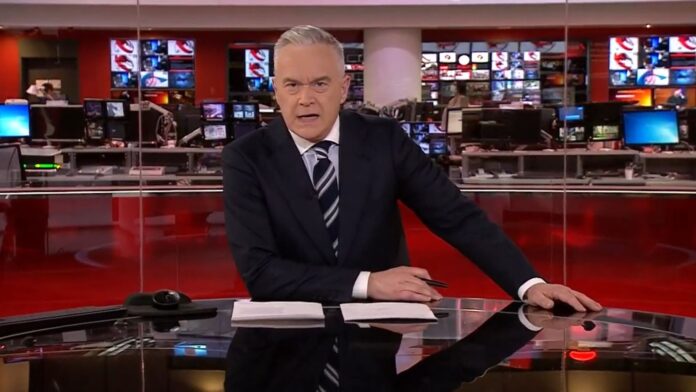The BBC has apologised to the family involved in the Huw Edwards scandal over the way it handled their complaint.
The BBC faced accusations it did not respond quickly enough to complaints from the family of a young person, after it took seven weeks for allegations of inappropriate behaviour to be put to Edwards.
Edwards, who was the BBC’s highest-earning newsreader, was accused of paying a teenager thousands of pounds for sexually explicit photos.
In July 2023 the BBC commissioned a review of its non-editorial complaints policies and processes, which promised to “assess how some complaints are red-flagged up the organisation”.
He also ordered an additional “factfinding investigation”.
Now, seven months later, the report has found there was a need for “greater consistency” in how complaints at the corporation are processed, and revealed that the initial complaint about Edwards was not logged on the relevant case management system so could not be seen by senior figures.
The report also highlighted that there was no documented process for contact and follows-ups with the complainant, so when attempts to make contact were unsuccessful, the course of action was not clear.
‘We accept the process improvements in full’
Commenting on the review, published today, Leigh Tavaziva, the BBC Group Chief Operating Officer said: “Although our existing processes and systems are, on the whole, working effectively, this review shows that we need to join them up better to ensure no matter how a non-editorial complaint comes into the BBC it is escalated swiftly, when needed, and dealt with by the right people.
“Where the review identifies process improvements we accept those in full, and we are delivering on an action plan with a number of enhancements already in place.
“The report identifies specific process shortcomings in the presenter case. The initial complaint in this case was not escalated quickly enough to senior management and we have apologised to the complainant for this.”
The report, which was led by Ms Tavaziva and carried out by Deloitte, also found that some employees felt nervous about raising a complaint with the BBC, particularly if it was about a more senior member of staff or a high profile figure.
Additionally it suggested the BBC make “better use of technology” to give a full picture of each complaint across all teams dealing with them.
Around a week after news of the allegations against Edwards broke, BBC director-general Tim Davie and other BBC bosses were questioned in parliament at a pre-arranged Lords Communications Committee session.
‘Not bring the BBC into disrepute’ clause
At the time Mr Davie said: “We have been in touch with the complainant, we want to be engaged and appropriately listening and understanding their concern”.
He was also asked about holding the BBC’s high-paid talent to account, responding: “I think the history of this industry is such that we should all be concerned and appropriately diligent around the abuse of power by people in powerful positions.
“You need to ensure that you’re very, very clear on what your expectations are culturally, as well as the policy.”
He went on to say he was “proud” of the corporation’s code of conduct and values, calling the whistleblowing process by which staff can confidentially report concerns to an external support at work line “a safe place”.
He also confirmed to peers that high-profile presenters at the corporation have a clause in their contract about not bringing the BBC into disrepute.
Original allegations
Allegations that Edwards paid a teenager more than £35,000 for sexually explicit photos were first published in The Sun on Friday 7 July. The paper did not name him at the time.
Five days later, the Metropolitan Police said they did not believe any criminal activity had taken place and would be taking no further action.
In a letter to BBC News, the young person at the centre of the Edwards controversy said via lawyers nothing inappropriate or unlawful happened with the then unnamed presenter.
Following intense speculation over the identity of the BBC presenter, Edwards’ wife, Vicky Flind, confirmed him as the man at the centre of the allegations.
In a statement, she said he was “suffering from serious mental health issues” and was “receiving in-patient hospital care”.
Edwards has been absent from screens since the story first broke.
As the face of BBC News At 10, the 62-year-old has previously led election night coverage, and broke the news of Queen Elizabeth II’s death. He was last on air on Wednesday 5 July, covering the King’s visit to Scotland.
Source : Sky News






